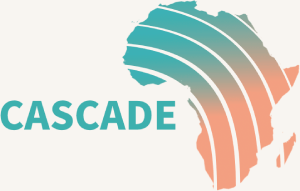Jun 29 2025
/
Collaborative Learning in Action: Reflections from the CASCADE Learning Lab in Harare

In May 2025, CASCADE hosted the second City Learning Lab in Harare—part of a broader, multi-city effort to explore and address the intersection of climate change, urban health, and local action.
The CASCADE project—Cascading Climate and Health Risks in African Cities—works across five cities: Harare, Accra, Kampala, Johannesburg, and Cape Town. Launched in 2023, it brings together researchers, policymakers, and communities to better understand climate-health risks and co-produce locally grounded, practical responses.
This Learning Lab was built on the foundations laid during Harare’s first Lab in 2024, which focused on identifying pressing climate-health challenges, including cholera outbreaks, drought, and waste mismanagement. The second Lab deepened the conversation, exploring risk pathways, existing interventions, and governance responses in the city.
Around 35 participants—including researchers, city officials, community leaders, and private sector representatives—gathered over two days for a dynamic and participatory process of dialogue, reflection, and creative exchange.
Listening to Data—and to Each Other
The Lab opened with reflections from Dr. Chris Jack, CASCADE’s Lead Principal Investigator, who emphasised the importance of meaning-making in climate and health work:
“Data alone doesn’t guide us—people give meaning to data. Tackling complex challenges like climate and health risks means listening across fields, sitting with uncertainty, and grounding our work in lived realities” – Dr. Jack.

Interactive sessions encouraged participants to map out complex climate-health pathways, consider unexpected future risks, and collaborate on more integrated responses.
“We often plan based on what we expect. But what about the things we didn’t imagine?” said Dr. Jack. “This Lab gave us a space to ask: what could happen that we’re not prepared for, and how can we build cities that are ready for the unexpected?”
Local Innovation and Community Leadership
A highlight of the Lab was a presentation on community-led waste management efforts in informal settlements, such as Tafara, shared by the Dialogue on Shelter Trust. These initiatives are turning waste from a hazard into a source of income, pride, and local resilience—especially for women and youth.
Community members collect, sort, and resell recyclable materials, compost organic waste, and creatively reuse items like tyres and bottles. These actions improve the local environment and support livelihoods.
Professor Chipo Mubaya, CASCADE Co-PI and lead partner in Harare, reflected on the strength of the collective space created:
“Bringing together city officials, youth, researchers, and community members in one space allowed for honest conversation and shared commitment. That’s the kind of collaboration we need to build the Harare we all want.”

Thinking Systemically, Acting Locally
While community actors shared their lived experiences and innovations from the ground up, the City of Harare presented on broader initiatives, including its Integrated Solid Waste Management Plan and upcoming waste-to-energy projects. Participants acknowledged the structural and resource challenges facing the city but identified opportunities to better align policy, practice, and community efforts.
“The challenges we face in cities like Harare don’t fit into neat boxes. Climate and health, infrastructure and inequality—they’re all connected,” said Dr. Jack. “If we’re serious about responding well, we need to bring people together who see and experience the city in different ways.”

Creative elements—such as scenario games, storytelling, and animation—helped surface new insights and make technical topics more accessible. As the event wrapped up, participants left with new connections, a deeper understanding, and a shared commitment to continue learning together.
CASCADE will continue to support Harare and its local actors as they navigate the climate-health challenges ahead, because resilient cities are built through collaboration, one learning moment at a time.
This commitment is part of our broader mission: advancing Africa’s response to urban climate and health risks, and our vision of improving the lives of people across Africa.
–
CASCADE is one of 14 consortia under the DELTAS Africa II initiative (2023-2026), implemented by the Science for Africa Foundation with support from Wellcome and the UK Foreign Commonwealth & Development Office.
Author: Alacia Armstrong, Communications Lead, CASCADE.
